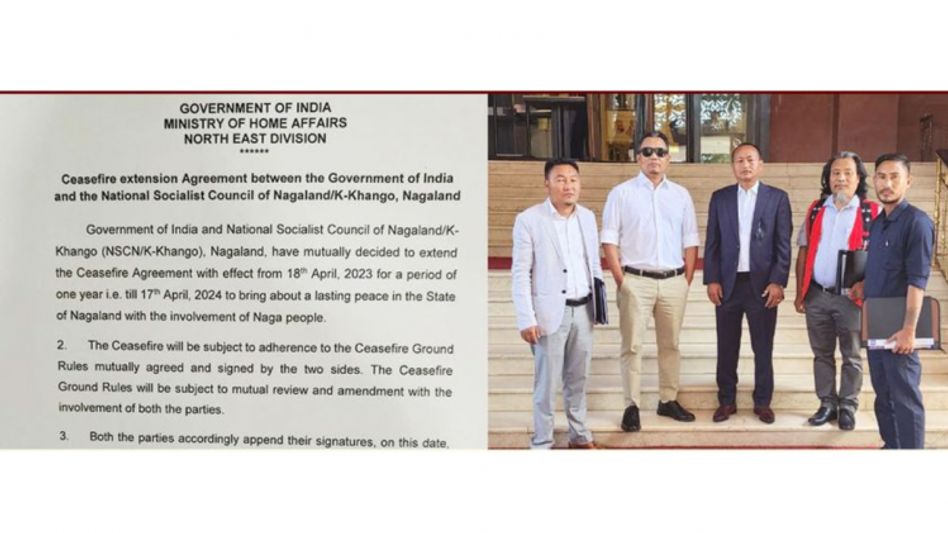Nagaland: Militant outfit NSCN(K) declares unilateral ceasefire for one year
The NSCN/K-Khango and the Government of India (GoI) have mutually decided to extend the Ceasefire Agreement.
 Militant outfit NSCN(K) declares unilateral ceasefire for one year
Militant outfit NSCN(K) declares unilateral ceasefire for one yearThe NSCN/K-Khango and the Government of India (GoI) have mutually decided to extend the Ceasefire Agreement.
The Ceasefire Agreement has been extended with effect from April 18 for a period of one year till April 17, 2024.
The decision for Ceasefire Agreement was taken to bring about a lasting peace in the state of Nagaland with the involvement of the Naga people.
The Ceasefire will be subjected to adherence to the Ceasefire Ground Rules mutually agreed upon and signed by the two sides.
Moreover, the Ceasefire Ground Rules will be subjected to mutual review and amendment with the involvement of both parties.
It is to be mentioned here that the Ceasefire Agreements are in operation between the Government of India and the National Socialist Council of Nagaland/NK (NSCN/NK), National Socialist Council of Nagaland/ Reformation (NSCN/R) and National Socialist Council of Nagaland/K-Khango (NSCN/K-Khango).
It was decided to extend the Ceasefire Agreements for a further period of one year with effect from 28th April 2023 to 27th April 2024 with NSCN/NK and NSCN/R and from 18th April 2023 to 17th April 2024 with NSCN/K-Khango. These Agreements were signed on 6th April 2023.
Earlier on March 18, the ceasefire office of the NSCN-K Khango Konyak camp located at Thilixu was allegedly attacked by impeached General Secretary Isak Sumi and his cadres on March 17 morning.
According to sources, Sumi arrived with around 10 to 12 men at the office and demanded that the Khango camp cadres open the gate.
Upon refusal, Sumi and his men resorted to firing, although no casualties were reported. The police have reached the spot and launched an investigation into the matter.
The incident comes after Isak Sumi, the general secretary of the NSCN-K (Khango) faction, was removed from office on January 5 by Khango Konyak, the faction's president, for operating without the approval of the group's collective leadership.
Sumi was accused of acquiring "absolute powers and functions" without the consent of the faction's collective leadership and was found guilty of "non-distribution of powers and functions, nepotism, and self-styled one-man government," which was in direct opposition to both "discipline" and the "yezhabo" (constitution).
Copyright©2025 Living Media India Limited. For reprint rights: Syndications Today









